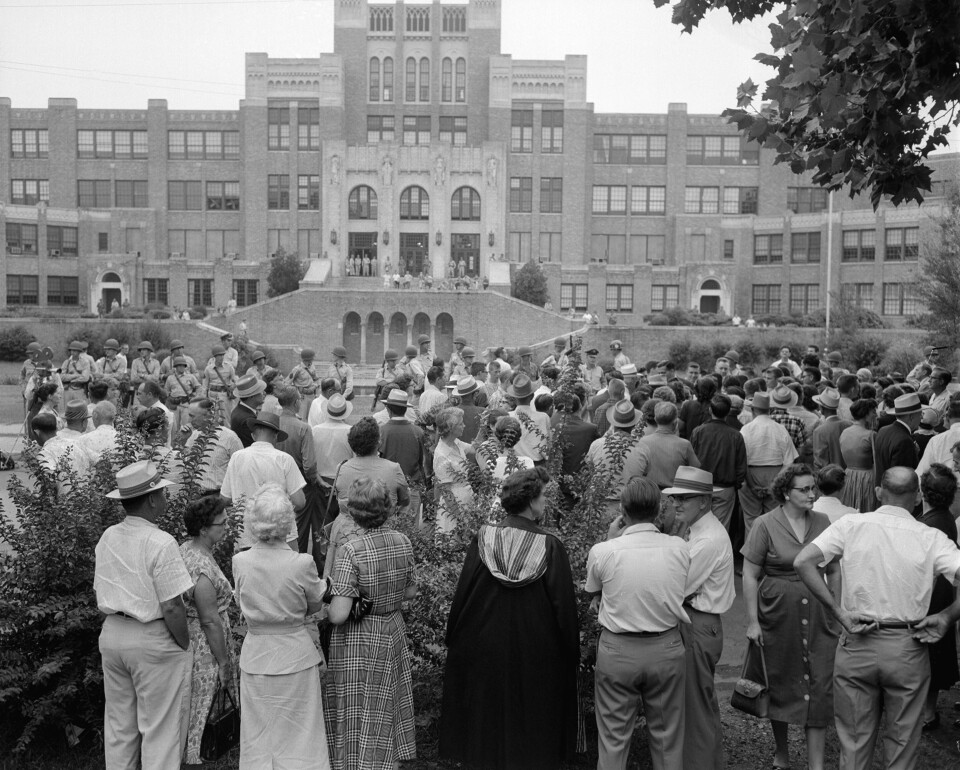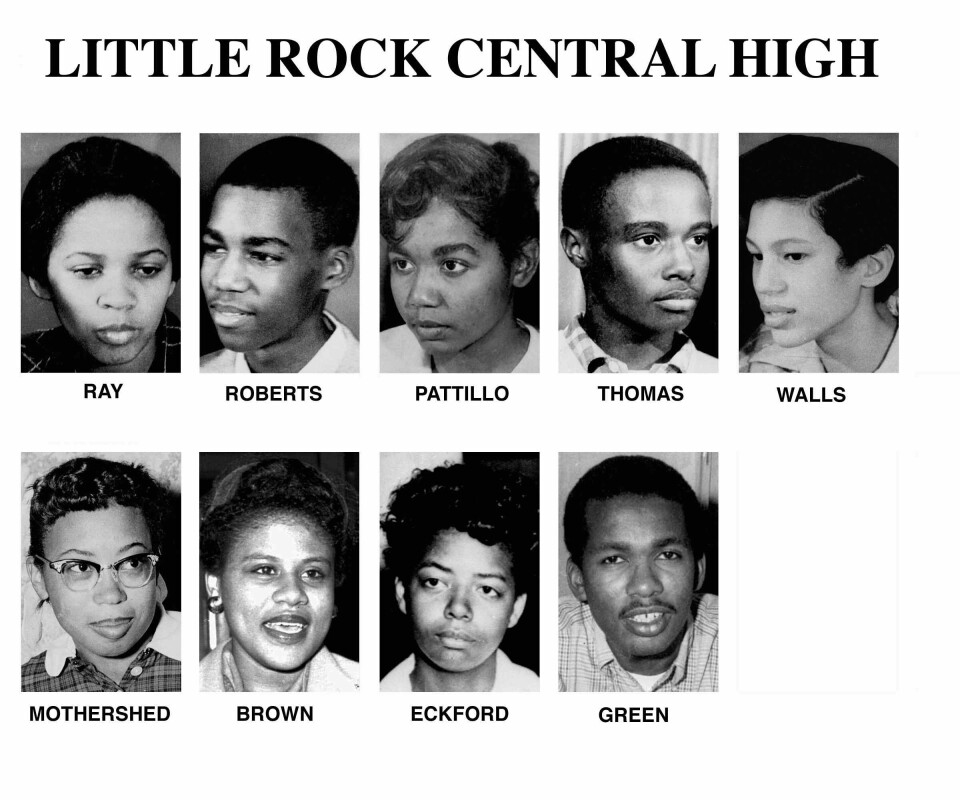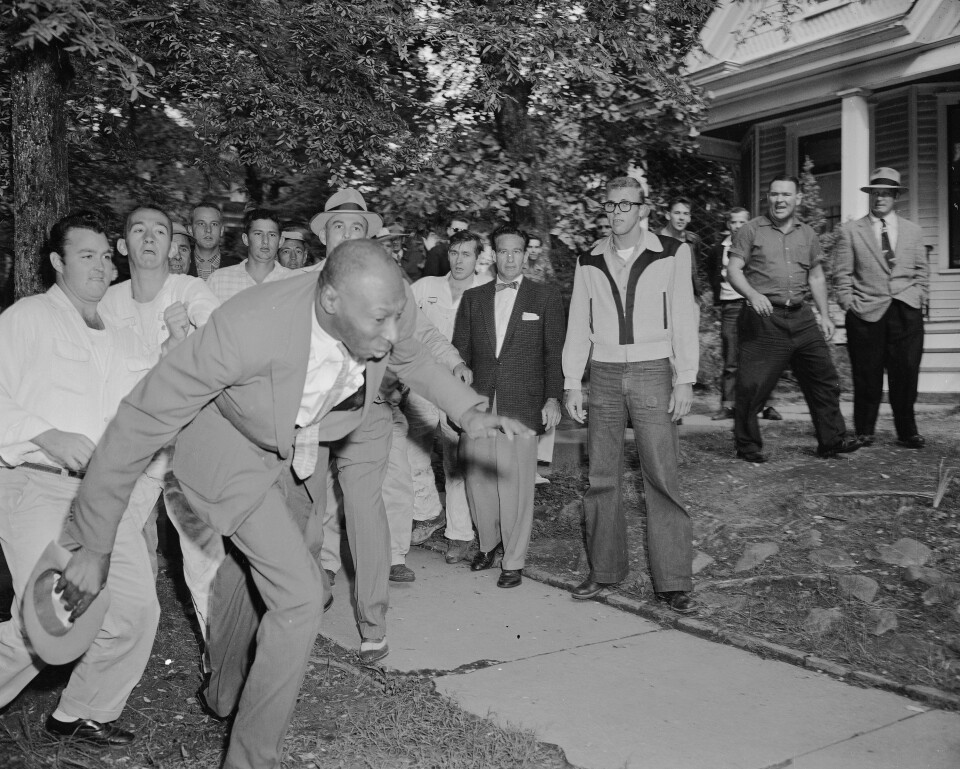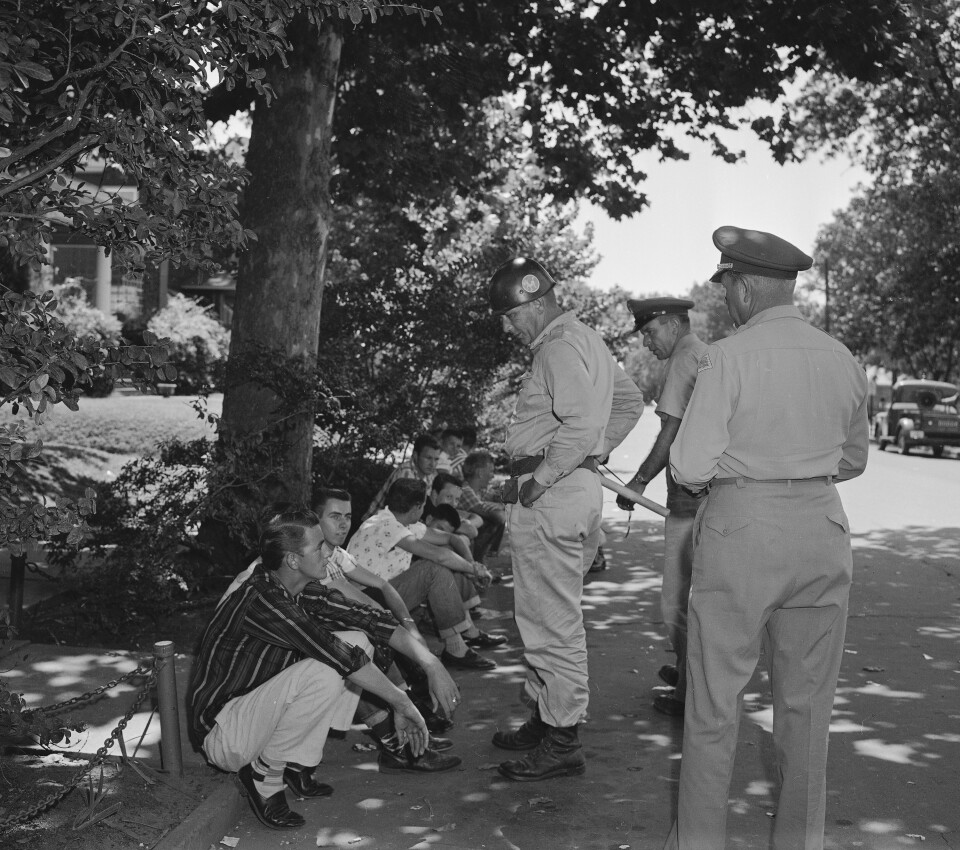SoCal residents answer: What does it mean to be an American? An experiment highlights the carless experience in LA, CA's new fault line by the Salton Sea.
Mayor Robert Moon on how Palm Springs recovers from tragedy
Residents in Palm Springs are coming to terms with the shooting deaths of two police officers this weekend, the first in more than 50 years.
Lesley Zerebny and Jose "Gil" Vega were killed while responding to a domestic violence call on Saturday. A third officer was hospitalized with gunshot wounds, and has since been released.
A 26-year-old suspect is in custody.
For more on this situation, Take Two's A Martinez spoke with city mayor, Robert Moon
To hear the full conversation, click the blue player above.
What effect is Donald Trump's candidacy having on the CA GOP?
The fallout of some disparaging remarks Donald Trump made about women back in 2005 dominated the news this weekend.
Here in California, how have Republicans running for office reacted to the controversy surrounding their presidential nominee?
Joining Take Two to discuss:
- Mike Madrid, GOP political consultant
Young Democrat, Republican united by disdain for Donald Trump
The Sunday night town hall debate in St. Louis, Missouri couldn't have come at a more precarious time for Donald Trump's presidential campaign.
Eleven years ago, an open microphone captured an instance of sexually aggressive banter that has come back to haunt the Republican nominee. The release of that video late Friday has shaken the Republican Party to its core and loomed over Donald Trump well into Sunday evening.
In an attempt to change the national conversation, the Trump camp set up a roundtable with women who have accused former President Bill Clinton of sexual misconduct ahead of the debate. The Washington Post reports the Trump campaign later lobbied to seat the accusers in the VIP box for Sunday night's debate itself, but organizers denied the request.
Among the millions watching the debate at home, two young women, each with a penchant for the political process: Republican Mary Perez, the vice president of the University of Southern California's GOP, and Kelsey Brewer, a Democrat, and recent Cal State Fullerton political science graduate. Though Brewer and Perez might differ in their visions for the future of the nation, there are three beliefs the two seem to hold close to their hearts: life, liberty and their dissatisfaction with the Republican nominee.
The young voters spoke Monday with Take Two's A Martinez. Below are excerpts from their conversation.
Mary, you are a Republican, but you've never been comfortable with Donald Trump as a candidate. Given the events of the past few days, did anything he said last night make you feel better about him?
No, honestly, coming into this debate I had very low expectations for Mr. Trump, and I think last night it was basically him just trying to salvage and trying to put any sort of remedy on the hemorrhage that he caused himself.
The debate was very volatile. I think that maybe he did a good job of -- kind of -- getting his base to go out and vote and capitalizing on trying to bring out these scandals with President Clinton. He really attracted his base, but he didn't really galvanize declined-to-states or any other voters.
Kelsey, what was your reaction when you saw the Trump tape with Billy Bush that came out on Friday?
I think like everybody else at first, I wanted to be surprised by it, but upon further reflection, the man has said xenophobic, Islamophobic, racist things this whole campaign.
What concerned me the most, and was so incredibly frustrating for me, was for a presidential candidate to stand up on live television, and to imply that, because this is locker room banter, that this isn't a real issue, that this isn't a serious issue that we should care about -- it's is absolutely disgusting to me.
The fact of the matter is, in this country, one in five college campuses, one in six women nationally, have experienced exactly what Donald Trump was describing. For him to imply that it is not something that we should use to judge his character and his fitness to hold the highest office in this nation is one of the most un-American things that I have heard this entire election.
My mind has been made up for a while, but I really hope that people will take to heart the words this man has said and the defense of those words.
Press the blue play button to hear the conversation in its entirety.
(Answers have been edited for clarity and brevity.)
'Birth of a Nation' sputters, Ava DuVernay dominates and Spielberg takes Chinese money
Nate Parker's "Birth of a Nation" sputters at the box office, Ava DuVernay's newest Netflix offering rockets to the top and Steven Spielberg turns to China to fund movies.
Rebecca Keegan from the Los Angeles Times joins A Martinez for a wrap up of film business news with our weekly segment, On The Lot.
To hear the entire conversation click on the audio embedded at the top of this post.
Why did the Trump video cause GOP defections when other controversies haven't?
By now, the video showing Republican nominee Donald Trump making vulgar comments about women has caused defections from the candidate from the GOP and prompted multiple questions in Sunday's debate.
It's just one of many controversies this election season, but it's one that likely won't go away anytime soon, said Jenée Desmond Harris senior correspondent on race and identity for vox.com.
"The issue with what Trump said is not that it was lewd or offensive," said Desmond Harris. "It wasn't about the words. It's about the fact that he said he can grab women's genitals against their will, which constitutes sexual assault."
Jenée Desmond Harris joined Take Two for more on Donald Trump and how race has featured in his presidential campaign.
Click on the blue button to listen to the interview
Fault discovered beneath Salton Sea could be tied to 'The Big One'
With everything else going on in the world, sometimes we forget that here in California, we live with the reality of the earth shaking violently and bringing everything crashing down.
A legion of scientists is devoted to studying earthquakes and they're still discovering important things about faults in our region. For instance, researchers from UC San Diego and the University of Nevada just published research about a newly discovered fault below the Salton Sea.
And that fault could have a major impact on whether we experience the big one.
Valerie Sahakian is one of the authors of the paper and she joins A Martinez to talk about the discovery.
Click on the audio link at the top of this post to hear the entire conversation.
A Nation Engaged: Little Rock Nine's Terrence Roberts says America hasn't changed
It was September of 1957 when Terrence Roberts and eight other African American students made civil rights history and became the first black students to attend an all-white high school in Arkansas. They would become known as the Little Rock Nine.
Advocates of integration had scored a decisive victory three years earlier with the U.S. Supreme Court's historic ruling in Brown versus the Board of Education. The decision represented a significant leap forward but, integrating schools would prove difficult; opposition was strong, and racial tensions were stoked by Arkansas Governor Orval Fabus, who was struggling to gather a voting base large enough to win re-election. To do this, the governor sought support from white segregationists.

Today, Roberts resides in Southern California. He recently shared his story as part of a collaboration with NPR titled, "A Nation Engaged." In this third and final installment, guests are asked what it means to be an American today. This is Terrence Roberts' story.
The Selection Process
The call came for volunteers from the school board who put the plan together. There were only two schools for black kids — one middle school, one high school, so it was an easy thing for them to make visits to both schools and then pose the question, 'How many of you would join us in this experiment to desegregate schools in Little Rock?'
I felt honored, really, because now the law was on my side for the very first time. So I wanted to model for other people what it meant to truly be a law abiding citizen.

Black Identity in 1957
The black person in the mind of the white in this country was one of not so much a person, but some sort of degraded savage. That didn't compute well with how I saw myself. I never accepted the definition that was attempting to be imposed upon me. I always knew that I was a worthwhile individual who had the right to be and had the right to do and to prosper. All of that made sense to me.

Then and Now
Looking back at Little Rock, in terms of what was going on, I compare then with now, and honestly, I don't see much change. The Black Lives Matter movement is one that has generated a lot of opposition. We — The Nine — were part of a Black Lives Matter movement back in 1957. What was our message other than our lives matter? Our right to be educated matters.
I think part of the problem with assessing what's going on now in terms of what happened then is that there is an assumption that we are literally a changed nation; we are not a changed nation. The president is pretty much a person who can set a tone, informing people about possibilities that lie ahead — the real work has to go on with the citizens.

An American Identity
I think my vision of myself today is essentially the same as the vision I had when I first entered this universe: I saw myself as a worthwhile person who had every right to be here. I still have that. The unfortunate thing is I don't know if everybody else has that same point of view.
I was recently commissioned to write an article. The article was to be about civil rights in the United States. As I was writing it, I was up in my study looking down, and I noticed a car drive up to my neighbor's house. A young woman got out, opened the trunk, and took out two 'Trump For President' signs, and I incorporated it in my narrative. It went something like this:
'I think it's important for all of us as American citizens to work together toward building a strong society with opportunities for all. My concern is, does my neighbor share my belief?'

Press the blue play button above to hear the story with audio clips from history.
To hear the full sit-down interview, click the bonus audio link below the play button.
(Answers have been edited for clarity and brevity.)
Series: A Nation Engaged
America is changing. The crosscurrents of demographic and cultural change are upending traditional voting patterns and altering the face of the American political parties in significant ways. As part of our collaborative project with NPR called "A Nation Engaged," this week we're asking: What does it mean to you to be an American?
Read more in this series and let us know your thoughts in the comments section below or on Facebook.
Going car free in LA

Cars are great for going anywhere at any time. But there are down sides: sl0-mo traffic, polluting emissions and money that just ... disappears.
Owning a car is expensive.
"The total cost per year is $8,558," according to Michael Calkins, with the American Automobile Association. "That includes the depreciation … of course fuel expenses, insurance, maintenance, various license, tax and registration fees, finance charges on the assumption that most people do finance their new cars."
All of that works out to about $25 each day just for a typical sedan. It's no wonder a lot of people fantasize about ditching their wheels because of the expense. It just doesn’t seem possible in a city as sprawling as L.A.
Or does it? These days, we have more options for getting around than ever before between trains, buses, ride hailing, car sharing, bike sharing. What if it is possible to stitch together transport from all the available options in a way that’s timely, convenient, affordable and safe?
To find out, KPCC motor critic Sue Carpenter parked her Ford F-150 and vowed to keep the ignition off the entire month of October for a grand experiment in DeCARifaCation.
Everything you need to know about Measure M, LA's transportation funding plan
Measure M calls for an extension of a half-cent sales tax, and the addition of another half-cent tax, all to fund transportation projects.
If it passes, it will raise up to $860 million dollars a year for improving freeways and expanding the public transportation network.
Whether you support or oppose Measure M, you probably agree that traffic congestion in L.A. is terrible and that something has to be done.
Most experts say the real solution is changing behavior - getting people out of their cars, and into alternate forms of transportation. So, we asked Sue Carpenter, the host of our series about modern mobility, The Ride, to embark on a little experiment.
For more on her car free experience and all things Measure M, Take Two's A Martinez spoke to Carpenter, KPCC's transportation reporter Meghan McCarty and Jason Jordon of the Washington, DC-based Center for Transportation Excellence.
Interview Highlights
What does Measure M do, if voters end up approving it?
McCarty: "It's got this long list of capital projects that will be undertaken over the next 40 years with the revenues from a sales tax increase, so it includes some pretty major rail expansions including a subway under that nightmare 405 Sepulveda pass, an extension of the Gold Line all the way to Claremont, it would accelerate construction of the Purple line subway which is now going to Westwood, that would be accelerated by 10 years and finish by 2024. It includes some kind of express transit, most likely light rail, down Van Nuys boulevard in the valley and also down Vermont Ave in central L.A. Also, some money for some big highway improvements, some of the biggest ones are expanding the 5 in Northern L.A. county, this desert corridor to the Antelope valley and another section connecting to the ports. It would fund state of good repair and operation for Metro into the future so that they could kind of keep up all this infrastructure that they're building and keep operations going."
How much will it cost and how will it get paid for?
McCarty: "This is an extension of the half-cent sales tax that we approved in 2008 with Measure R, with an additional half-cent added on to that and both of those half cents would go theoretically forever, or until voters decide to repeal them. It would also give Metro much stronger borrowing power to get loans to finish projects faster. This would raise $120 billion dollars over 40 years and in terms of what that would cost us as citizens of L.A. county, Metro estimates that each half-cent increase in the sales tax cost the average family about $25 bucks a year so the Measure R one costs voters $25 bucks a year, we're paying that right now, that would go on. And then this additional half-cent would cost voters another $25 dollars a year."
Sue, from your reporting, and your recent car-less-ness, what do you see as the critical things that have to happen to make it easier for people to get around without getting behind the wheel?
Carpenter: "Number one is innovation, which I'm sorry to say doesn't really exist in Measure M, which is calling for more of the same. So, big rail projects, better buses, improved highways, Metro says that Measure M projects are designed to make transit more convenient and affordable for three specific groups: Senior citizens, students and the disabled. It really is not about convincing people like me to give up my car though it should be, considering traffic and population projections. It's almost like Metro has given up on anyone who doesn't have to take it out of necessity and I'm just remembering that about eight years ago I interviewed Jay Leno and we were talking about this upcoming spate of electric vehicles and I asked him if he thought they were going to succeed and he said something that I think is just equally applicable to transit or how we get around which is: 'For any new technology to succeed it has to be better than what currently exists.' So, is Metro better than a personal car right now? In a lot of ways it is not...."
It's been reported that Measure M is the most expensive and ambitious of any plan on the ballot in this country. Is that, in fact, the case, and how does the L.A. plan compare with other measures in other communities?
Jordon: "It's certainly the largest, and maybe that's no surprise given the size of L.A. county and the overall ambitions of the plan you were speaking of earlier. But although it's the largest, it's not alone. There are five other measures across the country that are estimated to raise more than a billion individually new investments. Seattle for instance will be voting on a package estimated at at least $54 billion dollars. I also think it's important to remember that these are investments. There's a proven record of significant return on those investments, both in L.A. and around the country as I said, since 2000 voters have accrued these more than 70 percent of the time and that's a pretty amazing record politically when you stop to think of it. And I think one of the reasons is that people understand they're investing in specific projects and a specific plan that will benefit themselves whether they use transit or not."
To hear the full segment, click the blue play button above.
Comedian Negin Farsad explains 'How to Make White People Laugh'
Political and social activism can come in many flavors.
And sometimes the best way to make people think (and act) is to make them laugh. That's the approach that comedian and filmmaker Negin Farsad takes.
Farsad was selected as a TED Fellow for her work in social justice. She called her TED talk A Highly Scientific Taxonomy of Haters:
Farsad, who describes herself as an "Iranian-American Muslim female comedian-slash-filmmaker," says a lot of what she does can be summed up as "social justice comedy."
The idea behind it, Farsad says, is to "take something that's either too sensitive, or just far too boring, and make it accessible."
Negin Farsad explains her approach to social justice comedy in her new book titled "How to Make White People Laugh." She talked about it with Take Two's Alex Cohen.
To hear the full interview, click the blue player above.
EXCERPT:
How to Make White People Laugh by Southern California Public Radio on Scribd




